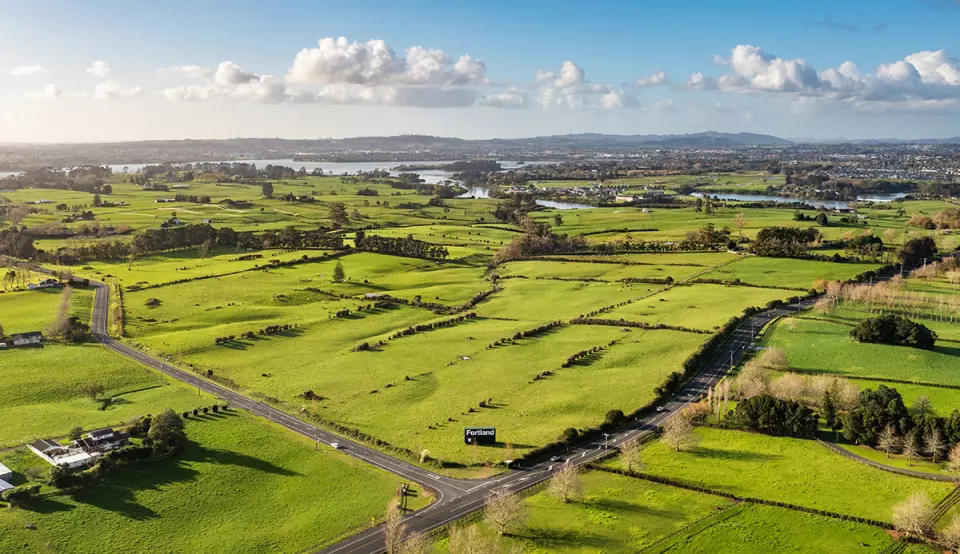In this opinion piece, Oliver Scutts, Investor Relations Manager of Fortland Capital, says the future of property investing lies in solving cities’ “growing pains”.
Kiwis are no strangers to investing in property. Like number eight wire or DIY engineering, it’s a part of our cultural DNA – but the future of traditional property investment looks increasingly uncertain.
Tax changes and building supply shortages have made it difficult for investors to turn a profit on residential and commercial buildings. With the Reserve Bank of New Zealand continuing to raise interest rates, this trend looks set to continue for the next few years.
That’s why Kiwis are increasingly looking to the future: instead of traditional property investments they are looking for alternatives.
Community investment is about unlocking the potential of our growing cities whilst better utilising its existing landscape. Cities like Auckland and Tauranga are expanding at breakneck speeds, but don’t have the available consented land to accommodate this new growth nor the infrastructure to support it. The land we need to build on exists - it just hasn’t yet been prepared for urbanisation.
It’s no secret our country is suffering from a usable land shortage. As a result our house prices are sky-rocketing, and neighbourhoods are becoming crowded, as more and more people compete for the same amount of space.
It doesn’t have to be this way. Large swathes of land on the edges of our major urban centres sit largely unused, and inefficiently deployed, as uneconomic rural blocks because they haven’t been properly prepared to be converted into an urban zone. The land is primed for urban development - but to date no one has taken a longer term view and actively pursued the pre-development stages which are required.
New Zealand desperately needs to unlock the potential buried in these raw tracts of land – it’s essential for our communities’ growth. Failure to do so means worse living conditions for the generations after us, as cities encounter unfixable growing pains.
That is where a company like Fortland Capital comes in to identify land that is poised for urbanisation and steward it through a consenting strategy with a vision for tomorrow’s communities.
Fortland Capital helps to prepare that land for the future communities to be built on, through thoughtful master planning of housing and businesses. It’s a new way to approach property investment that has largely been unavailable to the majority of property investors in New Zealand.
What community investment means
Community investment isn’t like traditional property development or investment. What we’re doing at Fortland Capital is unique – no diggers are needed, no shovels hit the ground. Instead, we prepare the land for future development by shepherding it through the stages of the often cumbersome land use process dictated by resource management and planning laws and regulations.
Fortland Capital arranges the acquisition of the land by a limited partnership, which certain qualifying wholesale investors approved by Fortland Capital can acquire a stake in. This will give them an ownership interest (via the limited partnership) in land parcels that have generally been unavailable to all but certain categories of high net worth property investors and large institutions. This opens the door to capital growth in the property market.
We work with best-in-class development consultants and resource management experts to actively pursue the necessary zoning and consent changes for the land, all the while giving the local community the opportunity to have a say in the land’s urban transformation.
Most investors in New Zealand haven’t had exposure to this unique model. We’re more acclimatised to traditional, small-scale investment – houses, baches and apartment blocks. We believe that in the future more investors will take an interest in community investment as they recognise the advantages it brings.
Whilst acquiring raw pre-development land is certainly not free from risk, land isn’t correlated to the housing market, so it isn’t as prone to fluctuations in value that can occur and it doesn’t require physical materials, so it scales well. With Fortland Capital’s unique syndication model that utilises private capital, there’s no need to encumber the land with debt and mortgages, which means there isn’t the risk that capital will be eaten away by interest costs.
Perhaps most importantly of all, community investment improves our cities. Purpose-driven models such as Fortland Capital’s also provides the opportunity for positive change alongside capital growth.
That’s why we see the community investment model as a leading new area of property investment, and one that we propose to make more accessible than ever before. We’re even more confident that it will drive meaningful change in this country for generations to come.
For more information see Fortland.co.nz. Nothing in this article constitutes an offer of any financial products. Only qualifying wholesale investors as approved by Fortland Capital will be permitted to explore any investment opportunities in Fortland Capital’s projects.






